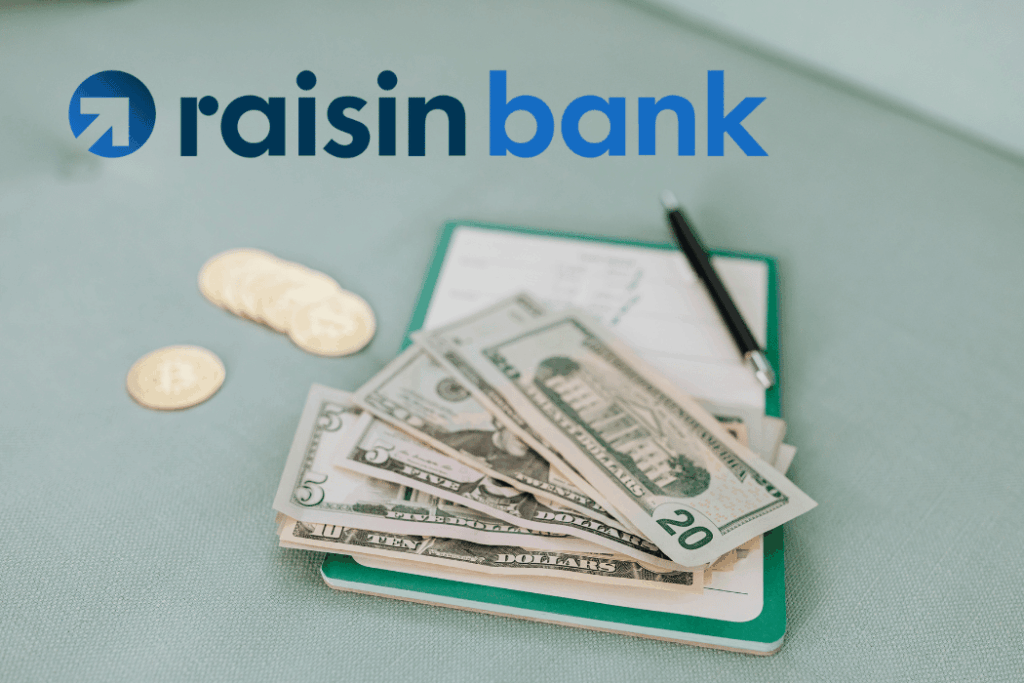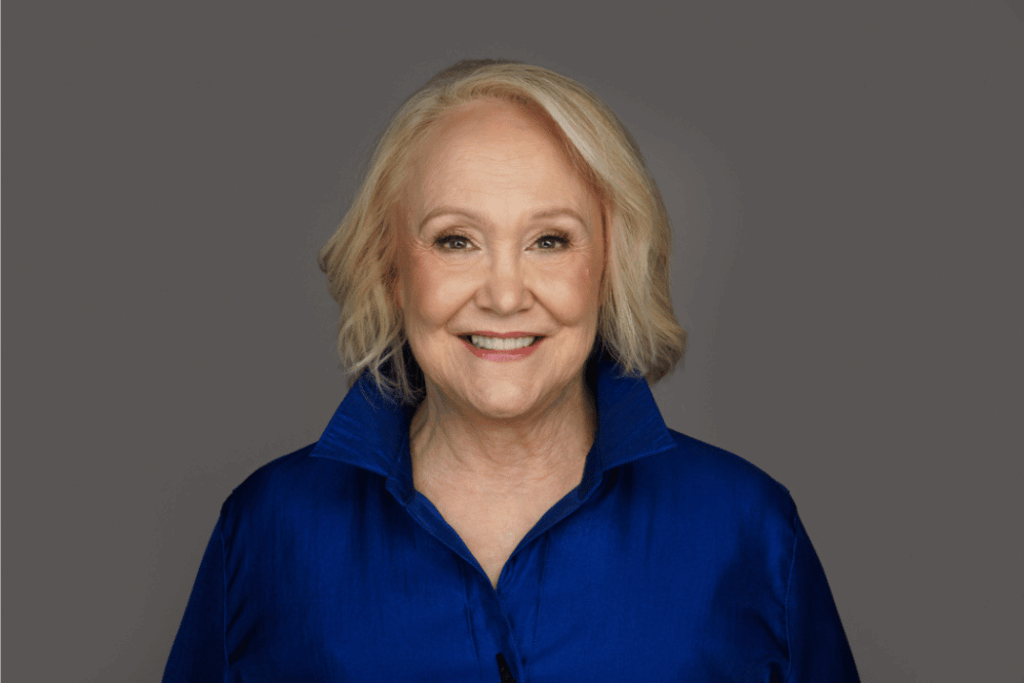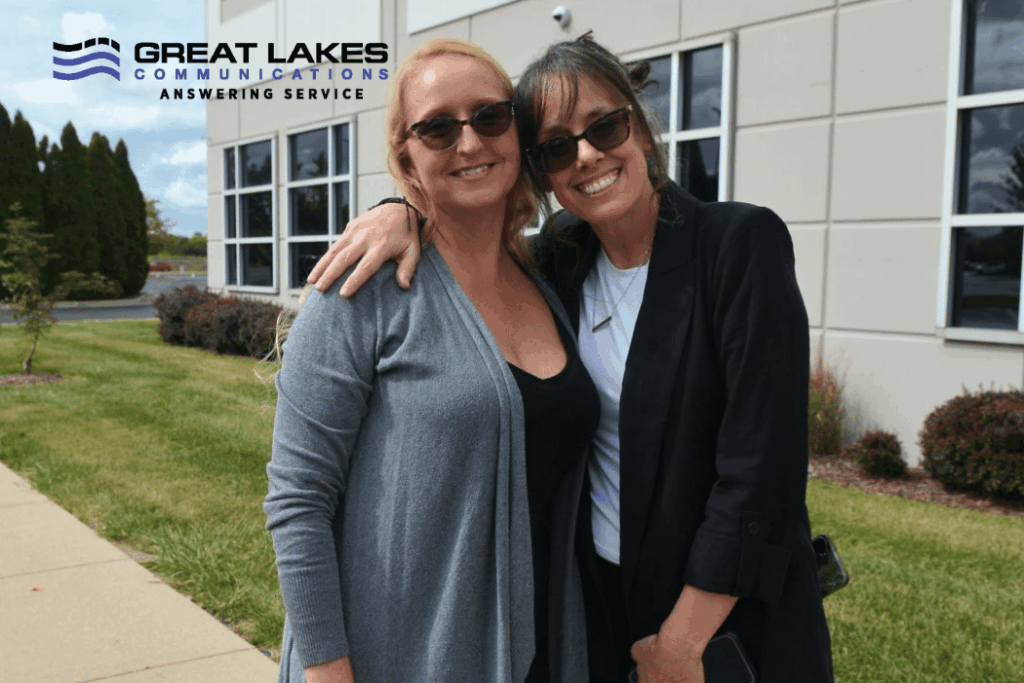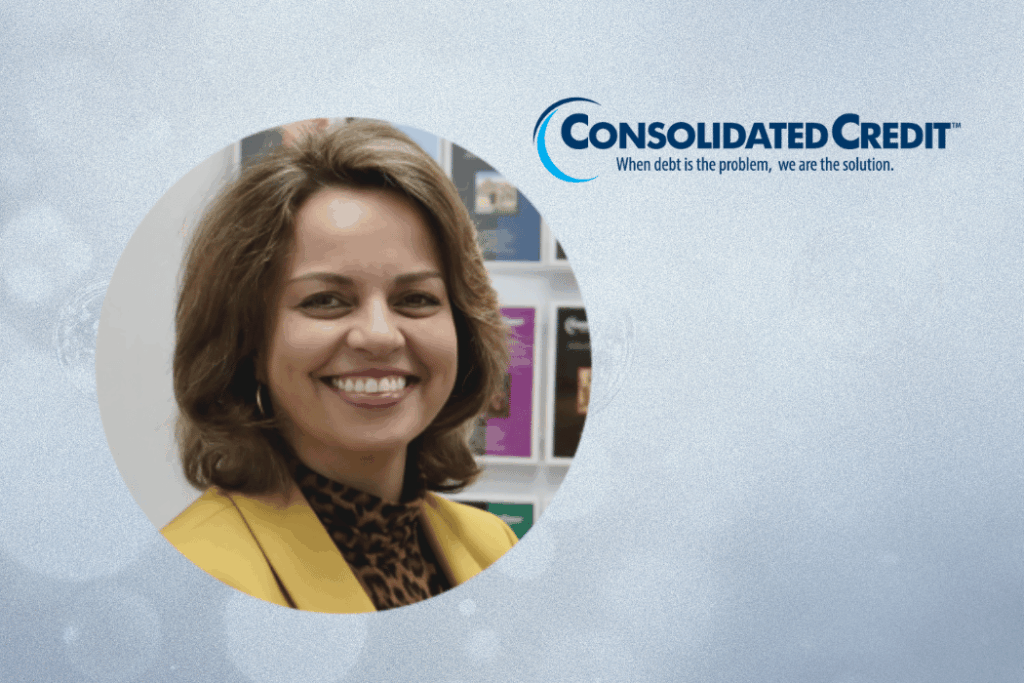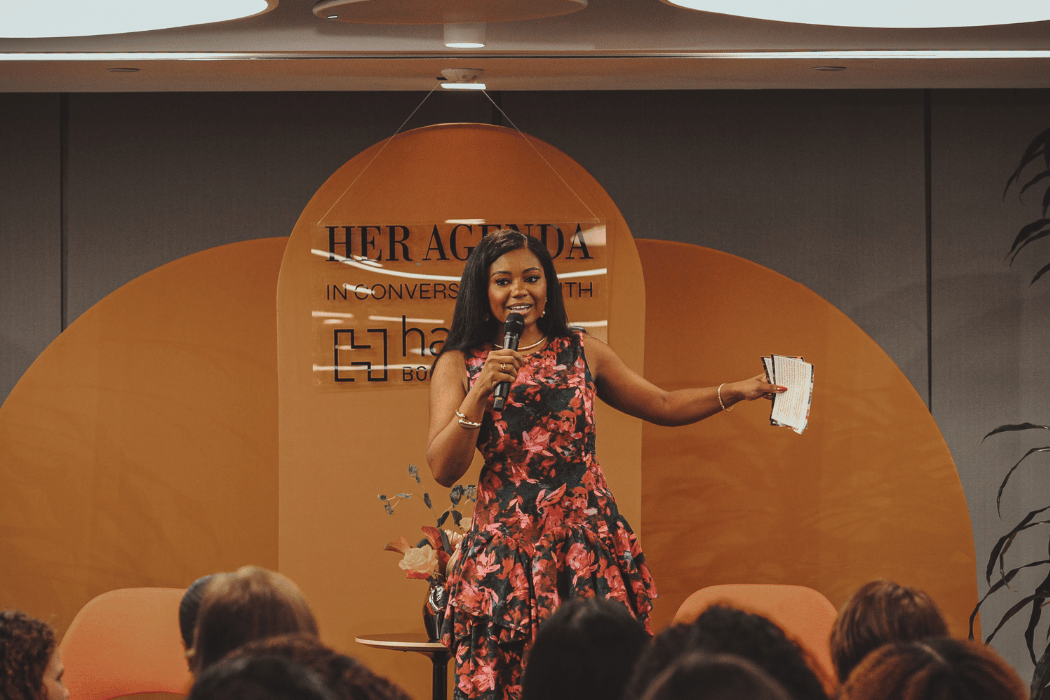
Rhonesha Byng built Her Agenda and a movement for millennial women
At 19 years old, sitting in a women’s studies class at DePauw University in 2008, Rhonesha Byng expected to learn about how women were taking over the world. “I thought I was going to learn about how women are taking over the world because it was 2008,” she recalls. “I’m like, okay, we’ve overcome. We are presidents. We’re CEOs. We’re running the world.”
Instead, she got a reality check.
“It was literally like a slap in the face to learn that the opposite was true, that the patriarchy was still holding women back. The gender pay gap still existed and women were not in positions of power at the ratio or rate that they should have been.”
But rather than feeling defeated, Byng, who had already been working in journalism and media since high school, recognized an opportunity. She understood the power that media had in shaping perception and how that perception translates into policy and everyday interactions. And she noticed something crucial: at the time, there were no platforms focused on powerful, ambitious women.
“I was like, I’ll do what I can do, which is change the narrative around women and power by just uplifting those women that have made it,” she explains. “We know about the statistics of who and why and all the barriers and all of that. But what about those that did make it? I wanted to create a platform that uplifted those stories to serve as the inspiration that, you know what, despite the challenges, it is possible to achieve my goals in this crazy world.”
That vision became Her Agenda, a digital media platform that has spent 17 years bridging the gap between ambition and achievement for millennial and Gen Z women. Today, as the founder and CEO, Byng has built more than just a media company; she’s created a blueprint for how women can define success on their own terms while building sustainable businesses and thriving communities.
From Career Ambition to Holistic Success
When Her Agenda first launched from Byng’s college dorm room, the focus was squarely on career and business success. “Get in the door, climb the ladder, and we were just focused on what happens essentially in the corporate space,” she says.
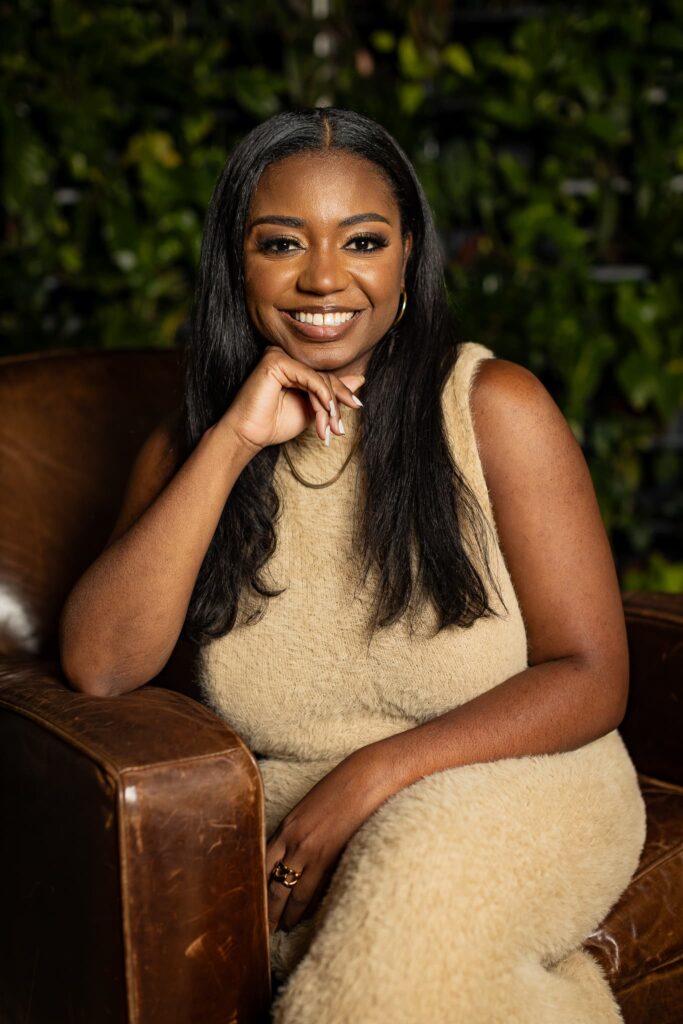
But over nearly two decades, the platform has evolved alongside its audience. “We really try to push is holistic success. So that’s success across your whole life, not just your professional, not just your business, not just your career,” Byng explains. “Ambition applies to everything, not just climbing the ladder or negotiating the next contract. It also applies to your personal endeavors, your relationships.”
This shift reflects a broader generational change in how millennial women approach success. Unlike previous generations who might have kept struggles private, millennials are more transparent about the full picture of their lives. “We are more transparent around our personal lives and struggles, which is why even you have this perception of us being overwhelmed,” Byng notes. “It’s because we’re more open to talking about that side of it, that we made it to the mountaintop, but okay, now I’m here and I’m feeling overwhelmed.”
The key difference? “We recognize it and we don’t ignore it. And then we lean into community. We lean into each other.”
This community-first approach is embedded in every aspect of Her Agenda, from the content strategy to the Her Agenda Insiders membership program, where women can have nuanced conversations about everything from navigating the hidden job market to managing feelings after having a second child. “These are conversations you can’t really have in the public,” Byng says.
The Power of Community in an Isolated Digital Age
For Byng, community isn’t just a buzzword, it’s a strategic imperative for women entrepreneurs navigating an increasingly isolating business landscape. But she acknowledges that showing up isn’t always easy.
“I think it starts with putting yourself out there, which can be hard because it’s like, I want to put my head down and just work. I don’t want to go to the dinners. I don’t want to go to the panels,” she admits. “But you have to sort of push yourself outside of what you feel comfortable doing. Usually before you go and before you get out the door, you’re like, oh, I have so many things to do or oh, I don’t want to go. Usually when you come back home, you’re like, wow, okay, it’s not just me. I don’t feel isolated anymore. And it just gives you that boost of energy to keep going.”
Byng has developed what she calls a “personal community board of directors,” an assembly of different groups she taps into for different needs and at different energy levels. “I have various communities that I tap into different ways for different things and depending on my energy level and what I can give,” she explains. “Because community is a give and take too.”
These communities range from Slack groups to Google groups to WhatsApp chats, each serving a specific purpose. And critically, Byng recognizes that sometimes you need to step back. “There are times, honestly, and this is okay, where you just need to be alone and to yourself. With the digital communities, you can mute them. Don’t have the notifications going off all day, every day.”
Her advice for women feeling isolated? “Sign up for things, put yourself out there. Don’t be afraid to go by yourself. Don’t wait for your friends all the time. At the end of the day, we show up and we do the thing and we have these spaces; it helps with the journey along the way.”
Building Without Burnout: Finding Joy in the Journey
When asked about preventing burnout, Byng reframes the question entirely. Rather than waiting for big vacations or rest periods, she advocates for weaving “little moments of joy” throughout the work itself.
“If you’re going on a work trip to a conference in Florida, in Miami, tack on an extra day. Don’t just go straight home and sit by the pool,” she suggests. “You had a big pitch meeting? Take yourself to lunch at a fancy restaurant solo and order a glass of champagne. Just find these moments of luxury and celebration within the work.”
This approach is especially important for entrepreneurs who can’t fully turn off, particularly in the growth stage. “A lot of people don’t know the difference between growth and scale,” Byng notes. “Growing is your expenses are continuing to grow as your revenue grows, but with scaling, your expenses stay the same, but your revenue is growing.”
She also emphasizes the importance of maximizing work travel. “If you’re taking a trip and you have the ability to go see a friend because you’re in town and you don’t live in the same town, but you’re in town for work, add an extra hour to have lunch with them or an extra day to sleep over at their house. Those little things add up along the way and help the work feel less overwhelming.”
The Capital Challenge: Building with Community Support
Byng’s journey to funding Her Agenda reveals both the persistent barriers facing women founders and creative strategies for overcoming them. In 2008, when she first sought venture capital, investors didn’t understand the media business model. They thought she was launching a blog and said her revenue model was “unfocused” because she had multiple revenue streams.
“Now I know in hindsight, aside from those surface level comments, there is a layer of bias involved of me being a woman, me being Black,” Byng reflects. “All of those things factored in as well because another little company was also raising funds at that time called BuzzFeed. And you see the massive difference there.”
Instead of giving up, Byng turned to her community, a strategy rooted in a motto she developed in high school: “No one ever slows her agenda.” That phrase, which became the inspiration for the platform’s name, also became her rallying cry.
“My community would always remind me of that. They’re like, no one slows your agenda,” she says. “Me having that motto and that mantra, putting it out there allowed my community to hold me accountable to get this done by any means.”
Her first creative funding solution? Selling t-shirts. “I sold t-shirts that said ‘no one ever slows our agenda’ on it. I used that money from selling the shirts to build the first version of the Her Agenda website. So that was about $5,000.”
Next came a crowdfunding campaign through Kiva, a platform that allows community donations structured as loans. “I hated the idea of it because it feels like you’re begging or asking for charity,” Byng admits. “But with Kiva, they’re basically giving you this money to do what you have to do and then you pay it back. That felt empowering because my community was able to get me to the next phase, but then I was able to make it almost like an investment, like, okay, here is your investment back. Thank you for believing in the vision.”
Her advice for other founders navigating the capital gap? “It really starts with the community and being open and vulnerable and transparent about what your goals are, what you need so that they can hold you accountable and they can also lean in and support you in your journey to get to the next level.”
The Business Behind the Stories: Operations and Acceleration
Like many media entrepreneurs, Byng started Her Agenda driven by a passion for storytelling. But she quickly learned that telling stories and building a sustainable business require different skill sets.
“A lot of entrepreneurs, especially in media, we go into it because we want to tell stories and we want to give voices to people we feel like don’t have a voice in mainstream media,” she explains. “Telling the stories usually is the easy part, but then it’s the business and the operations. That part of it is what we need to get better at and figure out more.”
One of her biggest challenges was operationalizing content production. “I had to figure out how to just put out content every day. I was like, I want to be a serious media company and I’m writing these articles. I need other writers. And then I put out a call for writers and then I had all these writers and I’m like, I have to figure out an editorial system.”
The solution came through documentation and standard operating procedures—a process Byng admits was “very annoying” for someone who prefers to “show you better than I can tell you.” But creating those systems proved essential. “Taking that time to create those SOPs and the documentation and creating a system serves me even to this day. And it’s 17 years now.”
A turning point came in 2015 when Byng went full-time with Her Agenda and participated in an accelerator program. “I went through an accelerator program in 2015 that helped me to get the tools to understand the business side of what I was building and how to make it make sense and for it to be sustainable.”
That same year, she made another crucial decision: stepping back from the editorial role. “I had to let go of the journalist part of me for a time because I could not do both,” she explains. “If I wanted to build Her Agenda into a business, I had to focus 100 percet on that. Am I a freelancer or am I a CEO? I had to have that conversation with myself.”
She decided to focus on building the business and bringing in revenue while hiring a managing editor to oversee content. “I had to let someone else be the content person and the storyteller so that I could be the CEO and bring in the revenue to become a sustainable business.”
Actionable Resources: From Inspiration to Implementation
What sets Her Agenda apart is its commitment to actionable content. “All of our stories are actionable,” Byng emphasizes. “We talk about the issues, but then we give actionable tips or actionable advice that you can immediately move on.”
Rather than positioning herself as a coach, Byng sees her role as a filter and guide. “Although we’re in this period where information is literally everywhere, it can be paralyzing to understand what resource or what path makes sense for me,” she notes. “I really try to be like a filter to provide a blueprint that makes sense for you based off your goals.”
This philosophy extends beyond articles to the Her Agenda Insiders community, where women can access resources from the hidden job market, get transparent advice about navigating career transitions, and tap into support when they need it.
A Vision for Equitable Entrepreneurship
When asked about policy changes needed to support women founders, Byng identifies three critical pillars: pay equity across private and public sectors, universal childcare access, and perhaps, controversially, universal basic income.
“Having just like a stipend every month for living expenses, I think that would be powerful for society across the board,” she says, acknowledging the bold nature of the proposal.
But Byng’s vision for equity goes beyond policy. It’s embedded in how she builds Her Agenda itself, through community support rather than traditional venture capital, through operationalizing rather than burning out, and through creating pathways for the next generation rather than gatekeeping success.
What’s Next: Expanding the Her Agenda Universe
As Her Agenda enters its 18th year, “Her Agenda is a college freshman now,” Byng jokes, the platform is expanding in exciting new directions. After taking a pandemic break from in-person events, the platform returned to live gatherings in 2024 with a September partnership with Hachette Book Group and an October event with the Ad Council and AARP focused on “pre-tirement,” planning for retirement starting in your 30s, 40s, and 50s.
“Getting women to start to think about that and understand that you can take small steps today that will add up over time,” Byng explains. “Don’t think putting $20 into a retirement account isn’t enough and so I’m just going to skip it. Just do what you can with what you have.”
In March 2026, Her Agenda will launch its first-ever awards and list: the Groundbreakers, honoring women across different ages and stages who are breaking barriers in their industries. “It’s kind of crazy we haven’t done a list before,” Byng admits.
Season two of the Her Agenda podcast is also launching in first quarter 2026, this time as a visual podcast with Byng conducting fresh interviews. “I get to put my journalist hat back on again,” she says with palpable excitement.
The Legacy of “No One Ever Slows Her Agenda”
Seventeen years after that eye-opening women’s studies class, Rhonesha Byng has built more than a media platform. She’s created a movement that redefines success, builds community, and provides actionable pathways for women entrepreneurs to thrive on their own terms.
Her approach offers a blueprint for the next generation: lead with transparency, lean into community, build systems that scale, find joy in the journey, and never let anyone slow your agenda, including yourself.
“At the end of the day, we show up and we do the thing,” Byng says. “And having these spaces helps with the journey along the way.”
For women entrepreneurs navigating the challenges of building businesses in an inequitable landscape, Her Agenda proves that success doesn’t have to come at the cost of wellbeing, that community can be stronger than capital, and that the most powerful stories are the ones that create pathways, not just inspiration, for others to follow.





